Learning Basque: Becoming an “Euskaldun Berria”
November 18, 2021
Dong… dong… dong…. The bellowing church bells are often the sound that I wake up to each morning in my dorm room. Looking at the clock, I see that it’s 7:00 a.m., and it’s time to get ready for another day of complete Basque language immersion at Maizpide Barnetegia, a Basque language immersion boarding school in Lazkao, Gipuzkoa.
“Egun on!” “Kaixo!” I’m greeted in Euskara, my father’s native language each morning, a language that I’ve dreamed of learning for a lifetime. Once I step outside of my dorm room, I leave behind the possibility of speaking or hearing anything other than Euskara for the day. The unwritten rule of only speaking in Euskara while living at the school can be challenging at times, but it pushes me beyond my comfort zone and has taught me to be less afraid of making mistakes and to speak for the sake of communication, rather than perfection.A light breakfast in the dining room fuels my brain and body for a day full of Basque language classes.
MORE ON LEARNING EUSKARA
A Basque-American’s Journey to Learn Euskara
Learning Basque – Why Immersion Works
Learning Basque with Videos and Songs
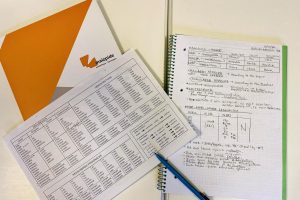
In class, I’m greeted by six other “euskaldun berriak,” or “new Basque speakers,” as they’re called in Euskal Herria. Despite only knowing each other for a few short weeks, our bond has grown quickly through our shared experiences of the confusion, successes, failures, and “aha!” moments that come with learning a new language. One of the most incredible parts of learning the language in this particular setting is that my classmates are of a wide range of ages (from early twenties to mid-fifties), are from three different countries, have different native languages and accents, and all have different stories and motives, but the most important thing that we have in common is that we all are here to learn Euskara.
Mikaela Explains Why Euskararen Eguna is So Important
In class, we are spoken to and speak only in Euskara as we learn grammar and vocabulary, complete worksheets, watch videos and listen to audio clips, and practice speaking, reading, and writing. In our case, speaking Euskara is essential because Euskara is the only language that is guaranteed that we all have in common. I’m often amazed by my teachers’ ability to explain a word or phrase in many ways through the use of synonyms, comparisons, or examples without slipping into another language to directly translate.
We spend five days per week and six and a half hours per day in class, typically with an hour of homework to follow. Despite free time being in short supply, there is no lack of fun and adventures to be had if surrounded by the right people. During our 30-minute morning break or long lunch break, I often go to drink coffee at the nearby bar, Herriko Taberna, and take walks around town or in the neighboring mountains with classmates. Around here, or at least within my class, Thursdays have become sacred. We’ve found that the best way to celebrate making it through a long week of classes is a Thursday night pintxo pote. Each Thursday, after our final class, many students from our school, as well as residents of the town go out to have a drink and a pintxo at a few different bars in town. We often find ourselves speaking (in Euskara, of course!) to local residents. What better way is there to practice speaking Euskara than with friends and native speakers? We, at least, haven’t found one.
I’ve quickly learned that full language immersion is not for the faint of heart, especially in this setting, but so far, I am enjoying the time I’m spending here and am amazed by the progress I have made in just a few short weeks. I have a long road ahead of me before I will consider myself “fluent” in Euskara, but each day brings new victories, though sometimes small, that encourage me to continue working to learn this beautiful language.

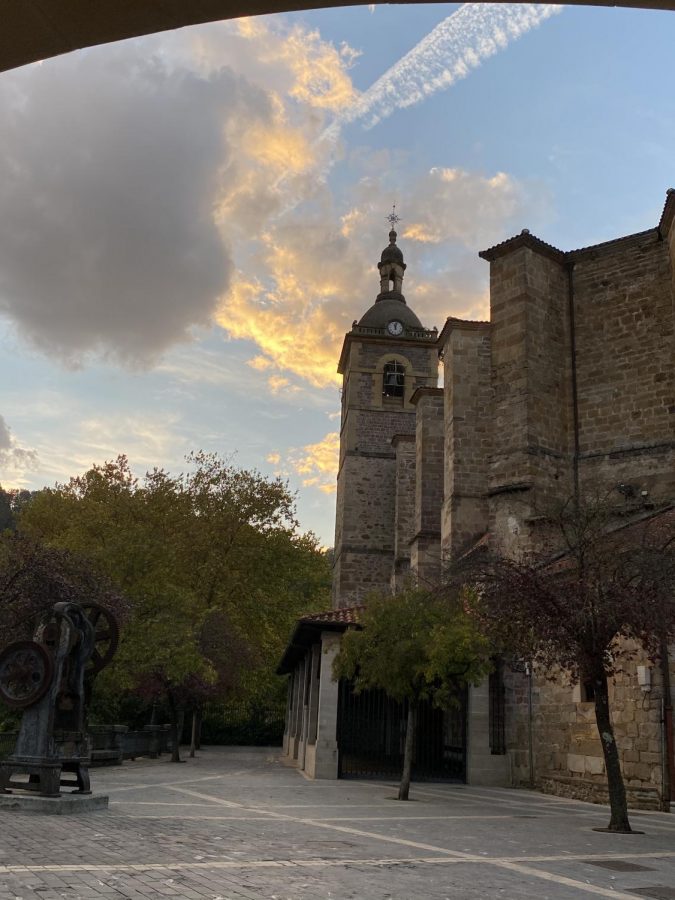

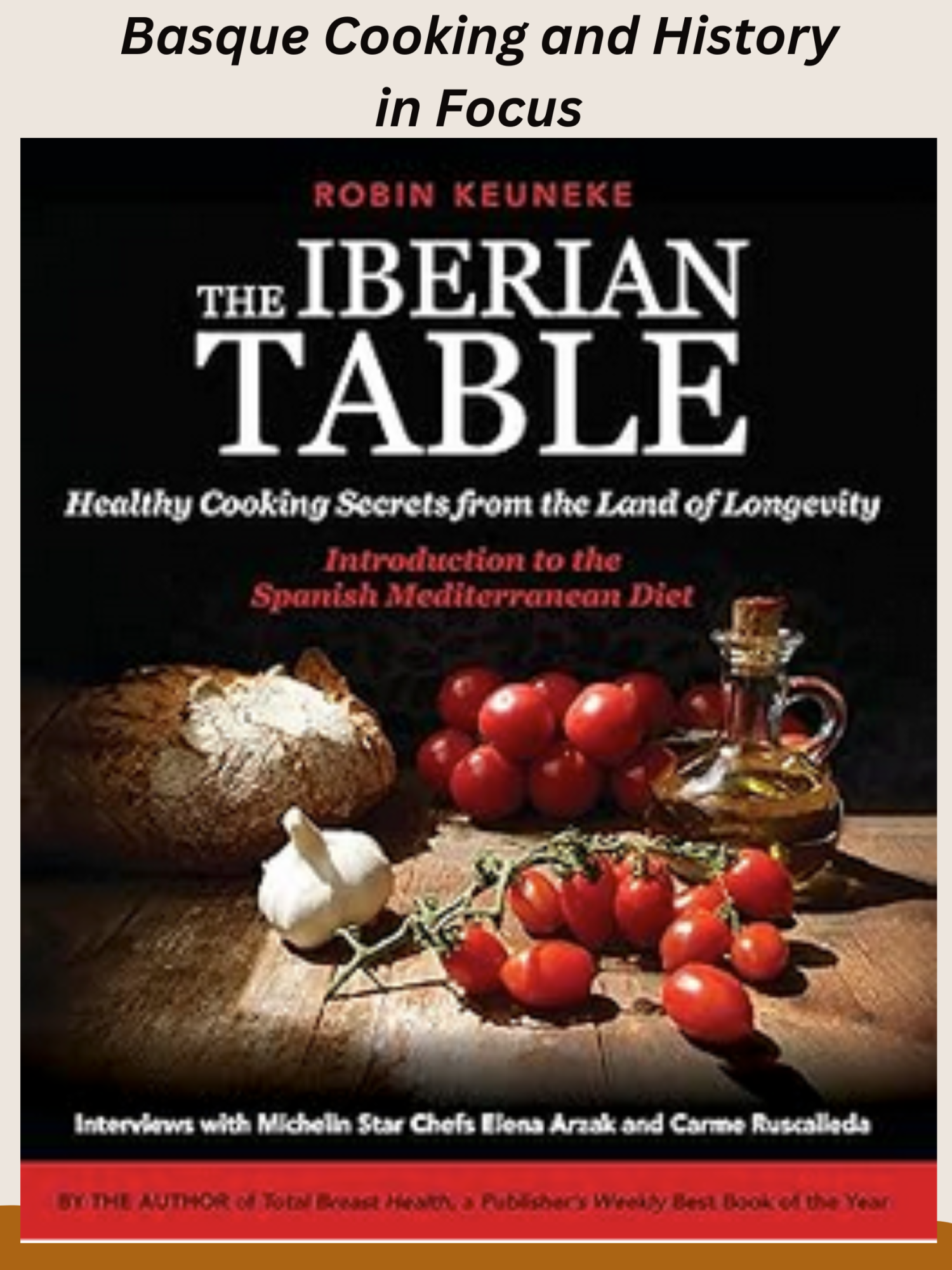
 Donate
Donate
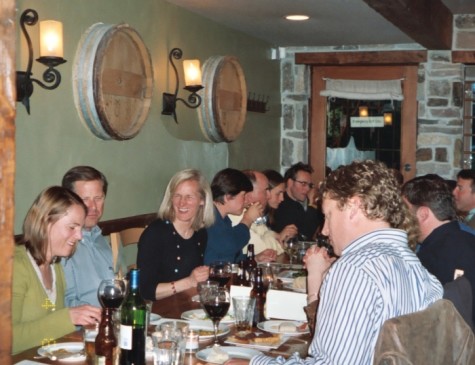
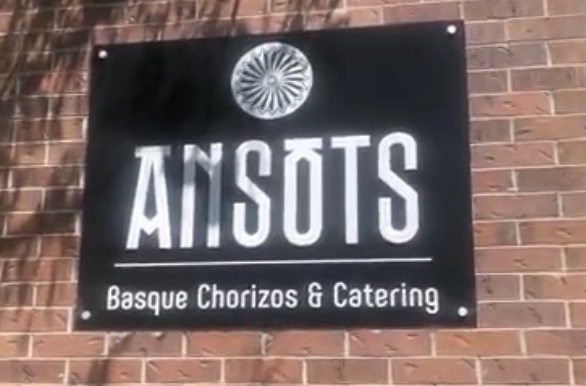

David • Dec 23, 2021 at 5:54 pm
Takes about two years of “steady” before you can kick that door-stop aside. Make the life adjustment and be there.